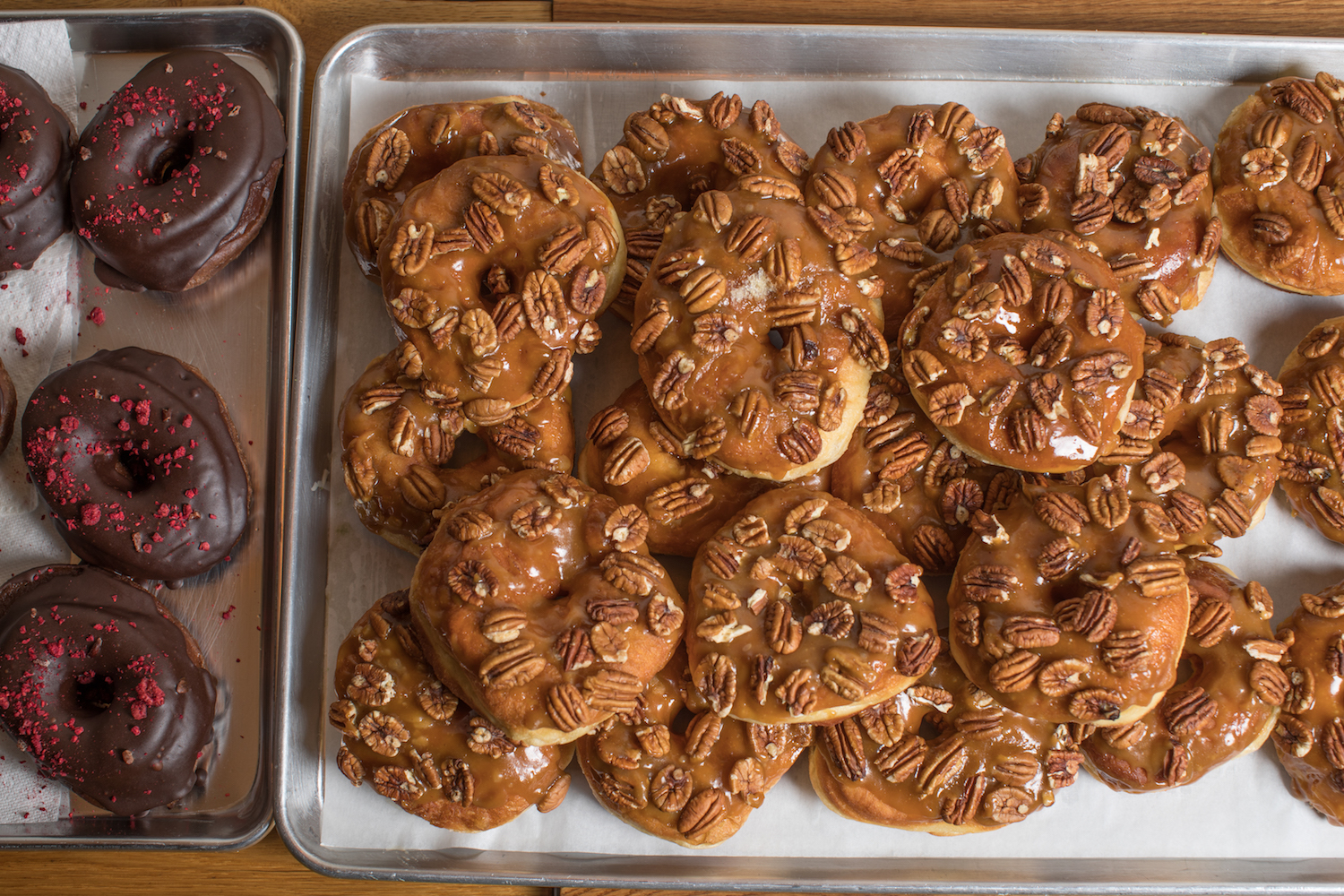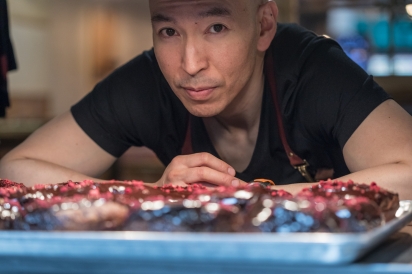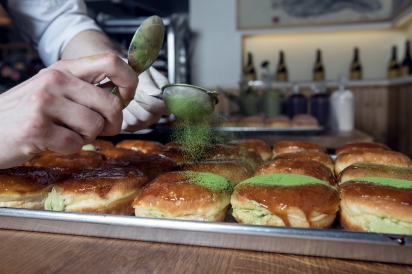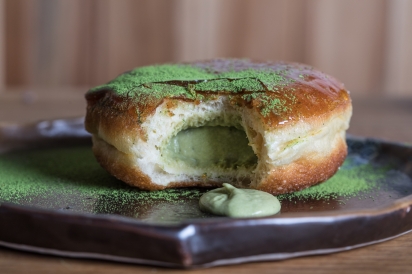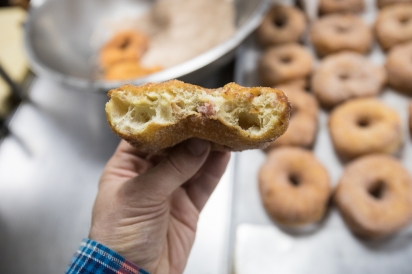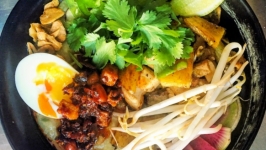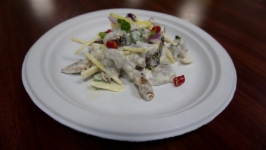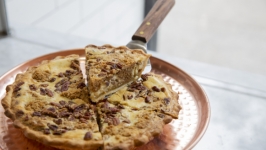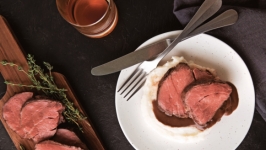Black Label Donuts
At time of print, Richard Eng remains in critical condition after having been the victim of a violent, senseless crime. Our prayers are with him and his family.
Just before 10 on a Sunday morning, Richard Eng carries doughnut trays to a sheet pan rack at Nippon Cha, a tea house and ramen shop on Bell Boulevard in Bayside.
A few customers are already lined up inside, waiting patiently with their doughnut wishlists. Others peer through the glass to confirm they’re in the right place; the restaurant doesn’t open for another hour, although Eng’s been there since 5am.
“Good morning, doughnut people!” he yells, carrying a tray of powdered-sugar-dusted Mont Blanc doughnuts, filled with chestnut cream and chocolate. They join dozens of raspberry lychee, rosemary lemon olive oil curd, matcha creme brulee, Rocher and other flavors stacked about five feet high.
There are no boring doughnuts at Black Label, the passion project Eng started in 2016 to bring back “integrity to the humble doughnut.”
Most doughnuts, even other artisan ones, are too sweet or monotonous, he says. He wanted a fine-dining approach and more depth, complexity. “I wanted something you could look at and say, ‘I’ve never had that before.’ Something that has more balance.”
Born and raised in Queens Village, with deep Queens roots—his grandfather opened up one of the first Chinese laundries in the borough decades ago—he started Black Label Donuts out of selfishness.
“I got tired of traveling to find something I enjoy. I wanted to see if I could up the bar in Queens.”
He challenged himself to concoct as many flavor combinations as possible, resulting in about 75 ideas. Some, like the orange miso sticky bun, were uncomplicated creations. Others are still in testing.
Formerly a chef, consultant to countless restaurants and maître d’ at Jean-Georges’ Vong, Eng drew upon his kitchen experience, mixing savory, sweet and sour notes, and looking to cocktails for inspiration. There are Filipino, Japanese, Chinese and Indian elements in his doughnuts, and he sources ingredients from local farmers markets. “I’ll never have anything out of a can, box or jar,” he said.
Although he’s sold at a few markets, his weekend pop-up at Nippon Cha has become home; he gets to use their kitchen, and fans know where to find him. He parks his cart in the middle of the restaurant; customers typically take their orders to-go.
On a recent Sunday, Dan Charvet—a regular who created an Instagram account just for Black Label’s updates—brought a long list of doughnuts to procure. His favorite? The kalamansi buttermilk lime: “This is the best doughnut in New York City, hands down.”
Black Label’s reputation has spread through social media and word of mouth. By noon, the doughnut line has swelled. Servers at the bustling restaurant carefully move around it, hoisting bowls of ramen and cups of tea above their heads.
Eng wants to build his brand, but for now he’s content with pop-ups. He’s applied kaizen to baking—the Japanese word and philosophy for constant improvement.
“You can take something simple like a sugar doughnut and improve on it. I’m trying to always improve upon what I perfected already.”
Nippon Cha | @nipponcha
Black Label | @blacklabeldonuts
Vong | @vongkitchen


